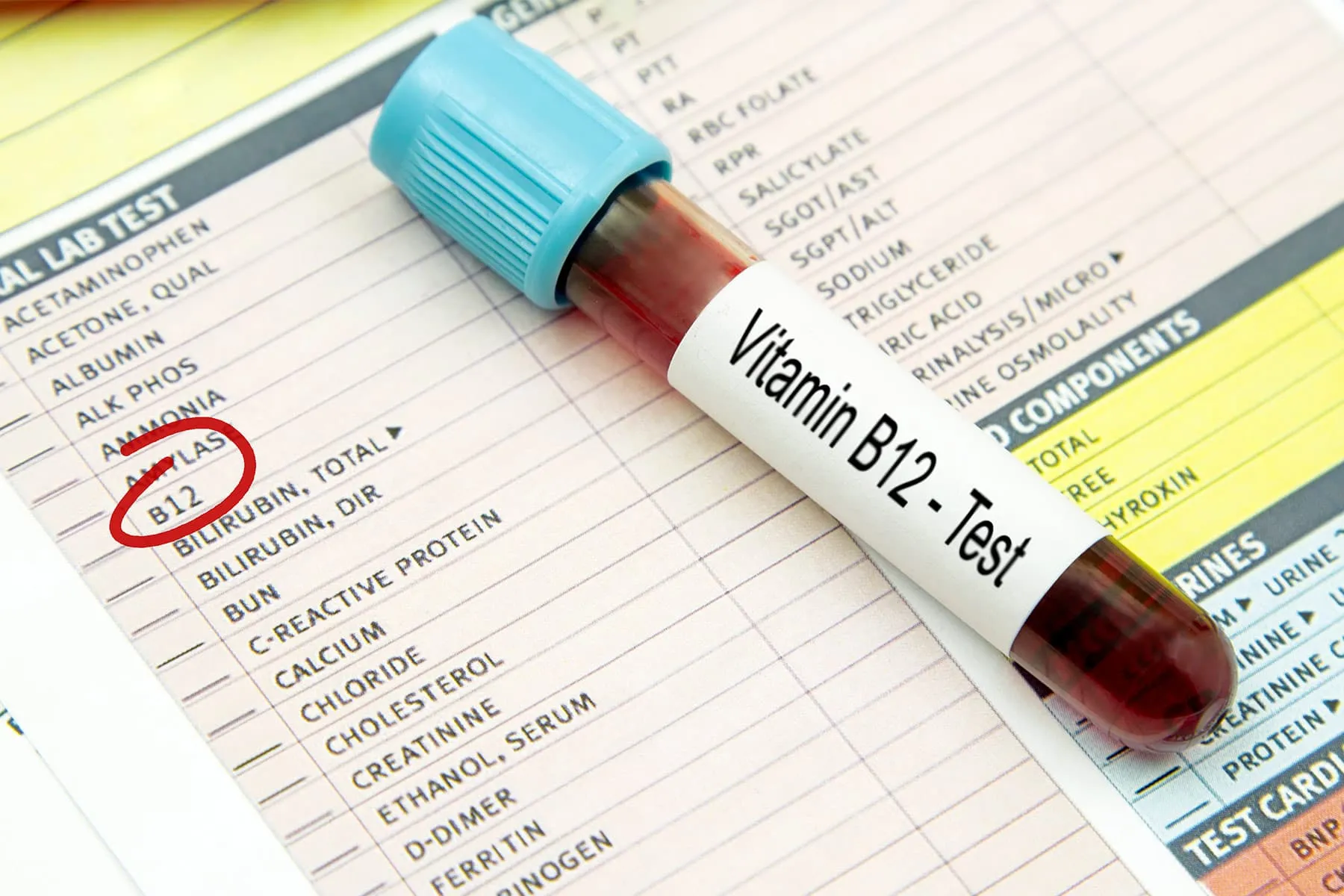Healthcare providers may suggest vitamin B12 supplements for individuals with particular medical conditions or dietary limitations. The appropriate amount can differ depending on factors like age, sex, and medical background.
Vitamin B12 is a water-soluble vitamin necessary for numerous vital functions in the body, including maintaining healthy blood.
The optimal amount of vitamin B12 depends on your sex, age, and the reason you’re using it.
Read on to explore the uses of B12 supplements and the research supporting dosage recommendations for various groups.
Why is vitamin B12 important?
Vitamin B12 is a vital nutrient that contributes significantly to multiple bodily processes.
It’s essential for proper red blood cell formation, DNA synthesis, and nerve health.
Vitamin B12 also helps lower levels of an amino acid called homocysteine, elevated amounts of which have been associated with chronic ailments such as heart disease, stroke, and Alzheimer’s disease.
Additionally, B12 is involved in producing energy. Still, there’s no evidence that taking B12 supplements boosts energy in people who already have sufficient levels of this vitamin.
B12 naturally occurs primarily in animal-derived foods, including meats, seafood, dairy, and eggs. It is also added to some fortified products like cereals and plant-based milks.
Because the body can store B12 for several years, severe deficiency is uncommon.
Deficiency can arise from inadequate dietary intake, impaired absorption, or use of medications that disrupt B12 uptake.
If you’re at risk for low B12, taking a supplement may help you achieve adequate levels.

Suggested amounts
The recommended dietary allowance (RDA) for vitamin B12 for most people is 2.4 micrograms (mcg).
However, your actual requirement may be higher or lower depending on age, lifestyle, and specific circumstances.
Keep in mind that the fraction of supplemental B12 your body absorbs isn’t very large — it’s estimated that about 10 mcg is absorbed from a 500-mcg oral B12 dose.
Below are dosage suggestions for particular situations.
Adults under 50
For individuals aged 14 and up, the RDA for vitamin B12 is 2.4 mcg.
Most people get this amount from their regular diet.
For instance, consuming the following would provide more than twice the daily B12 requirement:
- two eggs at breakfast (of B12)
- 85 grams (g) of tuna at lunch (2.5 mcg of B12)
- 85 g of beef at dinner (2.4 mcg of B12)
Therefore, routine supplementation is not typically necessary for healthy adults in this age bracket.
However, if you have any of the issues mentioned earlier that hinder B12 intake or absorption, you might consider a supplement.
Adults over 50
Older adults are at greater risk for vitamin B12 deficiency.
As people age, the body tends to produce less stomach acid and less intrinsic factor.
Stomach acid is required to release B12 from food, while intrinsic factor is necessary for its absorption.
Because absorption may decline with age, adults over 50 are advised to obtain most of their B12 from fortified foods and supplements.
Pregnant people
Pregnant individuals require slightly more vitamin B12 than the general population.
Low maternal B12 has been associated with birth defects in babies.
Consequently, the RDA for vitamin B12 during pregnancy is 2.6 mcg. This amount can be achieved through diet or a prenatal multivitamin.
Breastfeeding people
B12 deficiency in nursing infants has been associated with developmental delays.
Infant B12 deficiency may also cause lethargy, poor appetite, and failure to thrive.
For these reasons, the RDA for lactating individuals is higher than during pregnancy — specifically 2.8 mcg.
Vegetarians and vegans
Official B12 recommendations are the same for those following plant-based diets.
However, the 2.4 mcg RDA for people under 50 is more difficult to reach on vegetarian or vegan diets.
There are no specific government guidelines for B12 supplement doses tailored to vegetarians.
A healthcare provider can help design a personalized plan to ensure your nutritional needs are met.
Possible side effects
Vitamin B12 is water-soluble, so excess amounts are typically eliminated in urine.
Because it’s generally safe, no upper intake level (UL) has been established for vitamin B12. The UL indicates the maximum daily intake unlikely to cause adverse effects.
Still, rare side effects have been reported in some situations.
B12 injections can sometimes cause skin reactions, including acne and dermatitis (rash).
Individuals with kidney disease should avoid high doses of B vitamins unless advised by their physician.
The takeaway
Vitamin B12 is a nutrient involved in many essential bodily functions.
The RDA for vitamin B12 ranges from 2.4 mcg for most adults to 2.8 mcg for those who are breastfeeding.
Most people can meet these requirements through food, but older adults, people on strict plant-based diets, and those with absorption problems may benefit from supplementation, with doses tailored to individual needs.


















Leave a Reply
You must be logged in to post a comment.